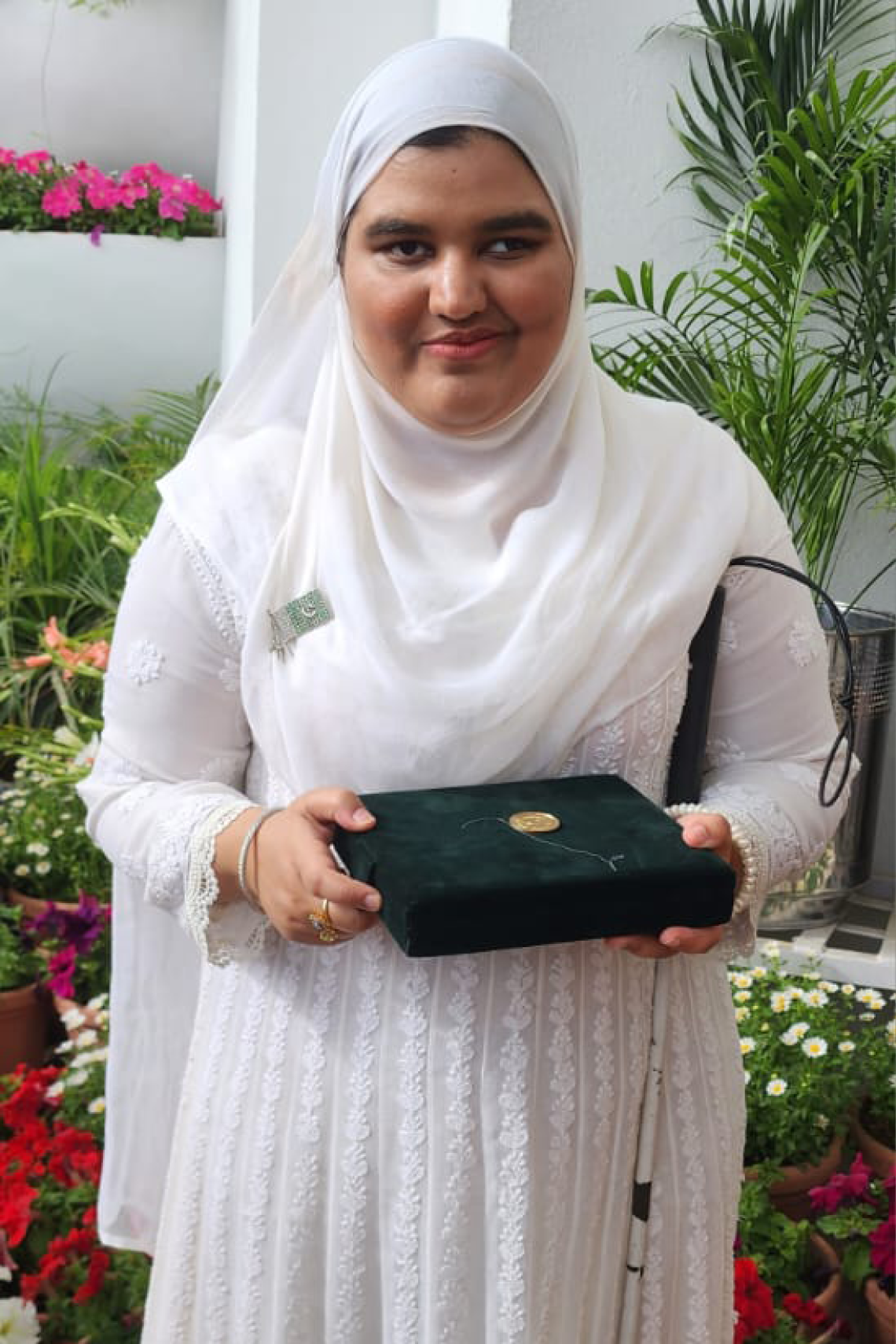ODID student Khansa Maria awarded top Pakistan honour for her disability activism
Warm congratulations to our student Khansa Maria, who has been awarded a Tamgha-e-Imtiaz prize, Pakistan’s national Medal of Excellence and one of the country’s highest honours, for her disability activism and educational success.
Khansa is one the youngest recipients in the award’s history. She was one of 135 distinguished Pakistani and foreign nationals to receive the award in the latest round.
Khansa, who is registered blind, is studying for the MPhil in Development Studies at ODID and is a Rhodes Scholar.
“Receiving this award was an absolute thrill, but I am acutely aware that it comes with immense responsibility”, Khansa said. “I am committed to continuing my advocacy work and view this recognition as a privilege”.
Khansa received the award from Pakistan’s President Arif Alvi at a ceremony in Islamabad in March.
Khansa did her undergraduate degree in the Science of Foreign Service with a specialisation in culture and politics at Georgetown University in Qatar.
She has been heavily involved in disability rights activism in Pakistan, Qatar and the UK, through capacity building workshops, advocacy and consultancy work. At Oxford she has been the Disabilities Officer for her college, Harris Manchester, and a co-leader of the Rhodes Disability Project, a student-initiated project to make Rhodes House more accessible for and supportive of disabled students. She has also volunteered with the Thomas Pocklington Trust, a UK national charity which supports blind and partially sighted people.
For her MPhil thesis, Khansa explored the educational experiences of students with disabilities in Pakistan and the unique ways families have often found to bridge the gaps in provision caused by lack of resources and the stigma around disability.
Khansa says she has had a very positive experience at Oxford overall, but believes more could be done to support students with disabilities.
“I've had a wonderful time at Oxford. The intellectual rigour and the friendships I've formed have made this experience truly unforgettable,” she says. “However, it's important to recognize that navigating this environment can be difficult, particularly when it comes to issues of accessibility and the ableist practices that are deeply entrenched in academic life. Nevertheless, I'm grateful for the unwavering support of my friends and the Rhodes Trust, which has enabled me to thrive here”.
She feels disability support can sometimes be a box-ticking exercise, and that more personalised solutions, with more empathy and understanding are needed. She also believes there could be greater emphasis on supporting social inclusion for disabled students.
For the future, Khansa will continue the research begun for her MPhil through a DPhil at the Department of Education.

